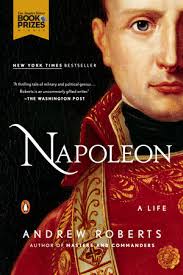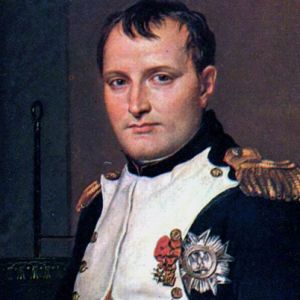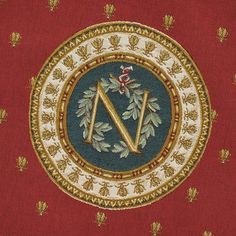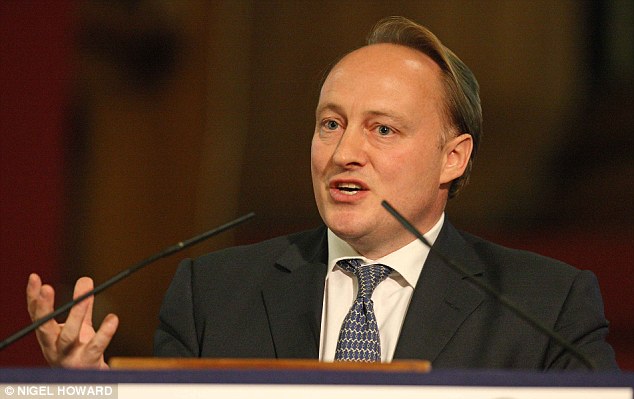I have read three very large biographies of Napoleon and found myself none the wiser. They were records of events with little or no insight into the making of the man in his youth, what drove him ever onward in maturity, or the talents that enabled him to do what he did.

There are more biographies of the Corsican than can be counted. Which to choose? No point in re-reading the three I had already been through, so I went shopping! I chose this one because the description emphasised the evidence the author used, i.e., contemporary letters, diaries, and reports, as well as Napoleon’s own letters, essays, and manuscripts. In anticipation of travel, I loaded the Kindle with this 890 page tome.
Indeed, the book opens with an impressive critique of the primary sources that have influenced many other biographies by showing that some accounts by Napoleon’s contemporaries and associates were written… forty-years after the fact, by the grandson and not the principal, based on nothing but memories of an eighty year old who did not keep a diary, produced by a fraudster and not by the man named on the cover, or comprehensively changed in translation by demonising Napoleon to suit English readers. Many memoirs of his contemporaries were very unreliable.
While I cannot judge the veracity of these assertions, they did convince me that this author is interested in evidence more than malice or gossip, which marred the earlier biographies I read.

Here are some of the things I learned.
1.The primacy of the family, a residue of Corsica where it was us-against-all. He stuck with his family members long after they proved to be liabilities.
2. His earlier aptitude for mathematics got him into military school and then the artillery. He long retained that analytic approach to his thinking.
3.His varied but indifferent early service in the Royal and then Revolutionary Army.
4.His decided to be French, and not Italian, or even Corsican. He spoke French badly and wrote it worse.
5.When the Revolution and the Terrors came each thinned the ranks of the officer corps leaving plenty scope for advancement for an energetic officer like the young Napoleon. Energy is one theme. He did sleep seven hours in a twenty-four but seldom in one stretch. He often dictated letters or travelled at 3 am.
6.He spend two years on assignment at the topographic office of the French Army in Paris, which was the de facto General Staff, where four old, experienced, and successful generals war gamed old battles and fictional ones, too, while Napoleon looked and learned. He had a prodigious memory. Thereafter he always collected and compiled maps.
7.In his first field command he created the post of Chief of Staff to manage the stage machinery of logistics and continued that ever after. The result was that his armies had greater mobility than his opponents because they had better staff work.
8.As commander of the fifth-rate French Army of Italy at twenty-six he encountered and bested three Austrian armies, each commanded by generals over seventy. They thought slower, moved slower, had more cumbersome ties to the political leadership, than Napoleon who acted first and explained later.
9.He acted in excess of his orders on the gamble that success would exonerate him, and it did.
10.While the political leadership did not trust any successful general, it needed the money he harvested in Italy and so kept him in service.
11.He filled his reports to the Directory in Paris with (A) exaggerations of his victories which went unchallenged as long as he sent along with them gold and loot and (B) misinformation about the Austrian generals he faced, praising the incompetents and deprecating the able, on the assumption that Austrian spies would read them and that Vienna would then keep the fools in command and replace the able. He continued to practice disinformation of several kinds on all of his campaigns.
12.He developed diamond manoeuvres, which I do not fathom, to allow his troops to adjust to line or column on the battlefield with ease. The innovative formations and rigorous training made his armies superior men-for-man.
 The honey bee was his emblem.
The honey bee was his emblem.
13.It is unlikely that he ever said that an army marches on its stomach but he knew it marched on its feet and spent a great deal of time and effort in getting boots for the troops. More than once, the terms of surrender he dictated to a defeated opponent involved shoe leather.
14.He published army newspapers to circulate among the troops which told them why they were fighting, both to defeat predatory enemies and to spread the enlightenment of the Revolution, and praised their deeds. The troops sent these cuttings home to show relatives how important they were.
15.To raise morale he awarded recognition to regiments, usually a motto, which was then sewn on the flag of the regiment. He created other honours and awards to stimulate patriotism and unity.
16.Made himself available to hear petitions from individual soldiers, and was generally very lenient with them while being stern, harsh, and demanding with officers, especially generals. There are some remarkable accounts of him striking up conversations with soldiers on sentry duty, wounded on battlefields, and other common soldiers. The author is sure no other general, not even in the French army, let alone in the Russian, Prussian, Austrian, or English armies of the time, would ever even recognise a man in the ranks. Once he met a solider he would remember him the next time.
17.He devoted resources and time to medical care for the wounded, and later pensions for widows, and payments to the incapacitated. Another theme in peace terms was medicine for his wounded.
18.As First Consul he stopped the bloodletting of the Revolution, invited home emigres, aristocrats, released from prison all political prisoners, and asked exiles to return to France. He appointed overt homosexuals to government posts, as well as Jews, Protestants, and atheists. Loyalty to France and then to himself, these were all that mattered.
19. He imposed Enlightenment rationality and universality to weights and measures, made French the official language rather than Occitan, Catalan, Basque, Breton, Norman, Italian in Nice, Dutch in Dunkirk, German in Alsace.
20.The Code Napoleon revolutionised, simplified, and rationalised the law, reducing the law from 5000 pages to 55 pages of principles.
21.He created scientific institutes and libraries some of which are still in use today.
22.He was a one-man Enlightenment for France in his early years with colossal energy.
23. Most fascinating to me was his ability to switch from one subject to another without a pause. While riding onto the field at the battle at Auerstadt he dictated a memorandum about building a girls’ school in Paris. There are lot of examples of this micro-management in the midst of battles.
24. His greatest military success was the bloodless battle at Ülm, where by a combination of speed, deception, and training his army completely surrounded a larger Austrian army which then surrendered. It was an astounding event.
25.He never understand the first thing about ships, oceans, navies. Indeed, he was convinced, and no amount of explanation could change his mind on this point, that the English naval blockade of Napoleonic Europe weakened England.
26.He found the coalitions he faced were divided by language, by goals, by opinions, even by calendars (Julian or Gregorian), munitions (calibers differed), formations, and so on. Each was a weakness which he — the single mind — exploited while they bickered and passed blame back and forth.
27.Personally he was courteous, calm, and heard out criticisms and alternative points of view. Not the raging tyrant of British propaganda. Though assassination attempts made him ever more paranoid.
28.The destructive invasion of Russia was precipitated by Russian complicity with England to break Napoleon’s continental system, despite a treaty affirming Russian compliance with it.
29.Napoleon’s plan was a month long campaign with battles on the border of Russia, and then a peace. Thereafter, step-by-step he went further in and then tarried. Long before General Winter struck, even more devastating was General Typhus.
30.The enormous army he took differed from the others he had led to success. First and foremost it was bigger than anything he had commanded before with attendant complications of logistics, communications, and movement. Moreover, the garrisons in the Napoleonic Empire from Portugal to the Danube absorbed 400,000+ troops. To staff the invasion army of 600,000+ he depended on contribution from seventeen allies: Bavaria Württemberg, Baden, Saxony, Hesse, Holland, Brabant, Spain, Basques, Catalonia, Poland, Hungary, Mamluks, Arabs, Romans, Milanese, Lombards, Naples, Slovenes, Swiss, and so and on. Altogether they offered a cacophony of languages, uniforms, procedures, calibers, food preferences, and motivations. About half of the invasion army were mercenaries, i.e., not French. It was divided by language and many of the troops from client states were not motivated.
31.Much of his earlier success sprang from the unity of command, the identity of training and weapons, and the speed of his army which he motivated with patriotism. In addition,nearly all of the generals he had opposed before Russia had been septuagenarians who had to get permission from a political leader before moving. This time the Russian Tsar was with his army and many of his generals were in their 40s.
32.His evolution into an emperor and a dynasty was partly to provide continuity and stability. When Alexander the Great died there was no successor and the result was civil war, ditto Caesar. He had also seen popular governments in French itself and in England pulled this way and that by tides of opinion. A monarchy would arise above those divisions provided it was constrained by a constitution. It sounds very like Georg Hegel’s account of a German constitution. Of course, it all rests on the assumption that Napoleon, Junior would be competent.
33. He seldom drank wine and did not drink Napoleon Brandy.
 Andrew Roberts
Andrew Roberts
There is much more to the story of this giant, but perhaps this suffices to indicate what a reader will find. At the end Roberts concludes that Napoleon was indeed deserving of the title Great.
Skip to content
